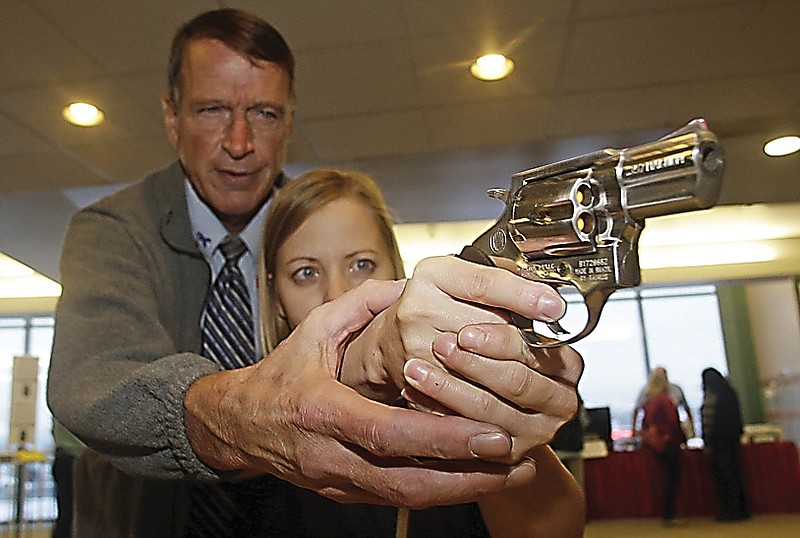When a gunman killed 26 children and staff at a Connecticut grade school, Missouri state Rep. Mike Kelley quickly proposed legislation that would allow trained teachers to carry hidden guns into the classroom as a "line of defense" against attackers.
Similar bills soon proliferated in Republican-led states as the National Rifle Association called for armed officers in every American school.
Yet less than four months later, the quest to put guns in schools has stalled in many traditionally gun-friendly states after encountering opposition from educators, reluctance from some governors and ambivalence from legislative leaders more focused on economic initiatives.
The loss of momentum highlights how difficult it can be to advance any gun legislation, whether to adopt greater restrictions or expand the rights to carry weapons.
Since the Dec. 14 shooting at Sandy Hook Elementary School in Newtown, Conn., legislators in at least four states - Connecticut, Colorado, Maryland and New York - have passed significant gun-control measures. The Newtown attack came less than five months after a gunman killed 12 people and injured 70 at a Colorado movie theater.
So far, South Dakota is the only state to respond with a new law allowing school personnel to carry guns into elementary and high schools. Similar legislation is awaiting the
governor's signature in Kansas. And Arkansas has enacted a new law allowing colleges to let staff with concealed gun permits bring their weapons on campus.
But Kelley has shelved legislation that would have let Missouri school staff carry firearms if they have concealed gun permits. His legislation never received a public hearing even though he is a House majority whip responsible for rallying Republican support for bills.
Kelley, an NRA member, tried to cast the bill's demise in a positive light.
"It's done the No. 1 thing that I wanted, and that's to bring awareness to schools about some of their safety issues," he said.
House Speaker Tim Jones vowed this past week that Missouri's Republican supermajorities would still pass some sort of pro-gun measure this year. But it's unlikely to involve arming teachers.
In Oklahoma, where pro-firearms measures usually get a warm reception from lawmakers, gun-rights advocates faced an uphill battle against educators opposed to any effort to allow guns in schools. A bill letting schools develop policies for arming trained employees died in the Senate Education Committee.
"As a rule, it's very difficult to find educators and administrators that support the idea of putting arms in the schools, for whatever reason," said Rep. Steve Martin, chairman of the Oklahoma House Public Safety Committee.
After opposition from education groups, the North Dakota Senate defeated a bill last month that would have let people with permits bring their weapons into schools. And the New Hampshire House rejected legislation that would have let local school districts seek voter approval for their personnel to carry guns.
"The chances an armed teacher will hit a child are high," Dean Michener, of the New Hampshire School Boards Association, told lawmakers earlier this year.
When NRA Executive Vice President Wayne LaPierre called for armed school officers, he warned that gun-free schools "tell every insane killer in America that schools are their safest place to inflict maximum mayhem with minimum risk."
His message carried extra heft, because many lawmakers in the more than two dozen Republican-controlled states are NRA members. The NRA did not respond to request for comment about the state response to its proposal.
In some states, Republican governors have put the damper on legislative efforts to place guns in schools.
Just days after the Newtown shooting, Michigan Gov. Rick Snyder vetoed legislation letting concealed weapon permit holders - including teachers - carry guns in schools, because there was no provision for local school districts to opt out.
Indiana Gov. Mike Pence raised concerns this past week about a bill requiring an armed "school protection officer" onsite during school hours.
"Decisions that are nearest and dearest to our hearts ought to be made by parents and local school officials," Pence told reporters.
Some states such Texas and Utah already allow teachers and administrators to bring guns to school, though the practice is not common. Just three Texas school boards have granted permission for concealed guns, said state Sen. Dan Patrick, a Houston Republican who is sponsoring legislation to train armed teachers for classroom gunfights.

